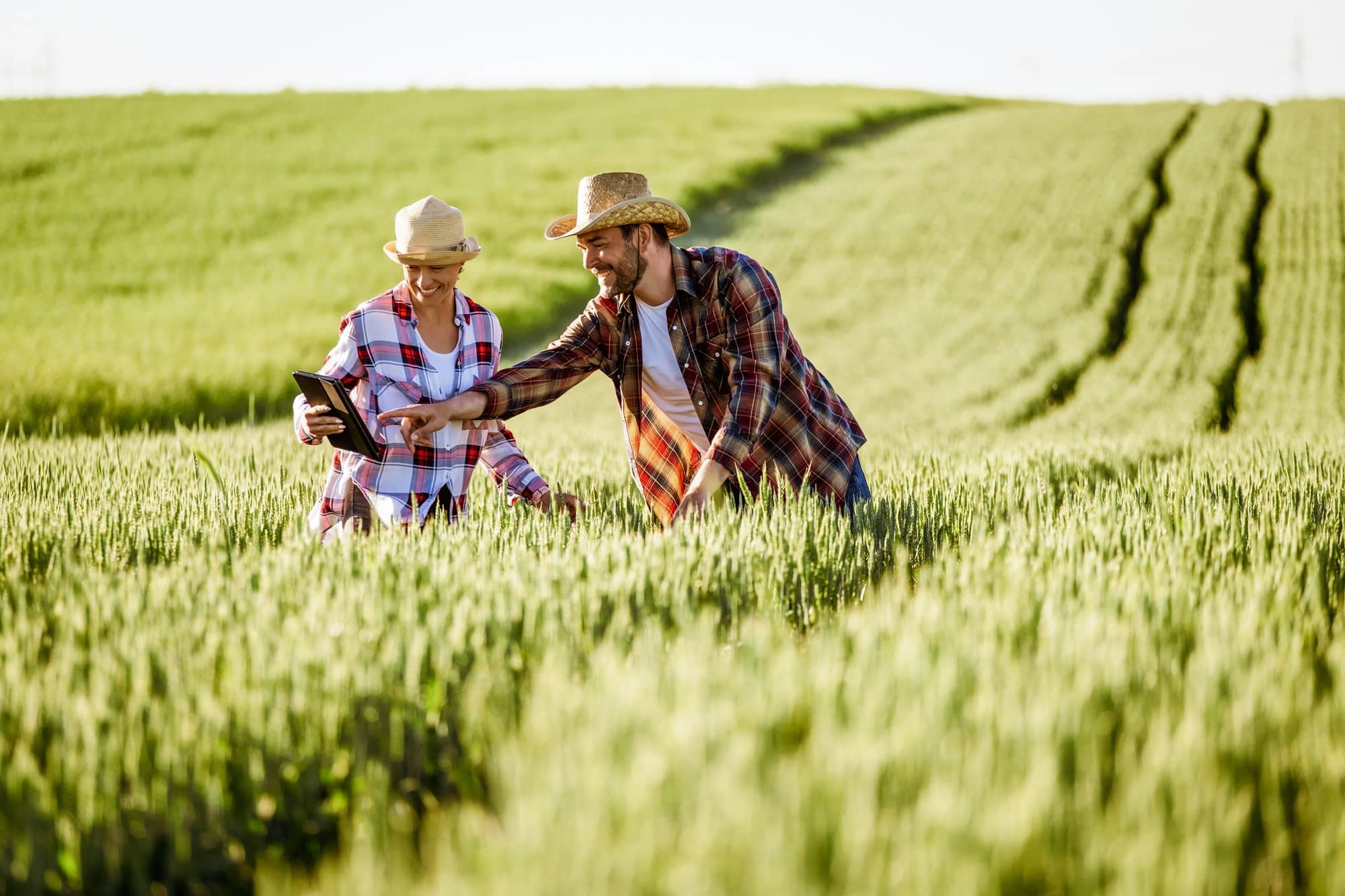Can AI-Driven Optimization of Vertical Farming Lead to Higher Crop Yields?

In the age of rapid technological advancements, the farming industry is not being left behind. The traditional methods of crop farming are being revolutionized through modern innovative technologies such as artificial intelligence (AI), Internet of Things (IoT), and Vertical Farming. The aim? To improve crop yields, foster sustainable farming practices, and increase overall agricultural efficiency. But can AI really optimize vertical farming and yield higher crop results? Let’s delve into this crucial matter.
The Intersection of Artificial Intelligence and Vertical Farming
Artificial intelligence (AI) is making profound changes in various industries globally, and agriculture is no exception. Especially, the combination of AI and vertical farming is creating a paradigm shift in the farming sector.
Also read : How do I use Linux patch management ?
Vertical farming is a revolutionary agricultural practice that involves growing crops in vertically stacked layers, typically in structures like skyscrapers, used warehouses, or shipping containers. This innovative approach to farming helps address the issues of land scarcity and the environmental impact of traditional farming practices. However, the optimization of vertical farms for maximum efficiency and yield is a complex task that requires data-driven precision and advanced management systems.
Enter AI. With its capabilities in data analysis, AI can significantly enhance the management and optimization of vertical farms. AI algorithms can process vast amounts of agricultural data rapidly, providing precise insights about crop health, growth patterns, and environmental factors affecting crop yields.
Also read : 12 vidéos inspirantes sur la marque employeur que vous devez voir
The Role of AI in Precision Agriculture and Yield Management
AI plays a fundamental role in precision agriculture – a farming management concept based on monitoring and optimizing crop growth at a granular level. AI can analyze various data points like soil composition, crop health, weather patterns, and pest infestation, providing farmers with insights necessary for making informed decisions.
In the context of vertical farming, AI can optimize water and nutrient distribution, regulate temperature and light conditions, and monitor crop health in real time. This level of precision in farm management can significantly increase crop yields and improve the overall efficiency of vertical farms. Furthermore, AI can predict future yield outcomes based on historical and real-time data, providing farmers with critical information for planning and resource allocation.
AI-Driven Sustainable Farming Practices
Sustainable farming is at the heart of vertical farming. However, achieving sustainability requires careful management of resources such as water, energy, and nutrients. AI can aid farmers in developing sustainable farming practices by optimizing these resources and minimizing waste.
For instance, AI can help in water management by analyzing data on plant water requirements and external factors like humidity and temperature. This allows for the precise watering of crops, reducing water wastage and ensuring optimal crop growth. AI can also optimize energy use by regulating light and temperature conditions based on data analysis, leading to energy efficiency.
IoT and Data Technology in Vertical Farming
The Internet of Things (IoT) and data technology play a pivotal role in making AI-driven vertical farming a reality. IoT devices can collect a vast range of data from a vertical farm, from temperature and humidity levels to soil pH and nutrient concentration. This data can then be analyzed by AI, leading to impactful insights and precise farming decisions.
IoT devices can also control various aspects of the farm’s operation, adjusting lighting, temperature, and irrigation systems in real-time based on the insights derived from AI. This seamless integration of IoT and AI enhances the overall efficiency of vertical farming operations, leading to significant improvements in crop yields and sustainability.
The Environmental Impact of AI-Driven Vertical Farming
AI-driven vertical farming is not only beneficial for farmers but also for the environment. By optimizing resource usage and minimizing waste, it promotes environmental sustainability. Traditional farming practices often lead to soil degradation, biodiversity loss, and greenhouse gas emissions. However, vertical farming can mitigate these environmental issues.
AI can further enhance the environmental benefits of vertical farming. By optimizing water, energy, and nutrient usage, it can reduce the environmental footprint of farming operations. Moreover, AI can help in the early detection of diseases and pests, reducing the need for pesticides and other harmful chemicals.
In conclusion, AI has the potential to dramatically enhance vertical farming, leading to increased crop yields, sustainability, and environmental protection. As the world grapples with the challenges of climate change and food security, AI-driven vertical farming offers promise as a high-yield, sustainable solution for the future of agriculture.
The Potential of Machine Learning in Vertical Farming
Machine learning, a subset of artificial intelligence, is showing great promise in revolutionizing farming practices, particularly in vertical farming. Machine learning algorithms can learn from data and improve their performance over time, making them highly efficient at analyzing complex agricultural data.
In the context of vertical farming, machine learning can be used to analyze vast amounts of real-time data collected from various sensors across the farming operation. This can include data on temperature, humidity, light levels, soil pH, nutrient concentration, and plant growth patterns, among others. By analyzing this data, machine learning can help farmers make more informed decisions about optimizing their farming practices for maximum yield.
For instance, machine learning can analyze plant growth data to identify patterns and trends, helping farmers understand what conditions promote optimal growth. It can also help in predicting future crop yields based on historical and real-time data, which can inform decision making for resource allocation and crop planning. Such data-driven decision making can lead to higher crop yields and more efficient farming practices.
Moreover, machine learning can improve the environmental impact of vertical farming. By optimizing the use of resources like water and energy, machine learning can help reduce the environmental footprint of farming operations. It can also aid in early detection of diseases and pests, reducing the need for harmful pesticides and chemicals.
The Synergy of AI, Computer Vision and IoT in Vertical Farming
Another exciting development in AI-driven vertical farming is the use of computer vision and IoT technology. Computer vision is a field of artificial intelligence that trains computers to interpret and understand the visual world. In vertical farming, computer vision can be used to monitor crop health and growth in real time.
IoT devices equipped with cameras can capture images of crops, which can then be analyzed by computer vision algorithms. This can allow for the detection of diseases or pests at an early stage, enabling timely intervention and minimizing crop damage.
In addition, the combination of AI, computer vision, and IoT can lead to a high degree of automation in vertical farming. IoT devices can control various aspects of the farming operation, adjusting lighting, temperature, and watering systems based on the insights derived from AI and computer vision. This can lead to more precise farming practices, higher crop yields, and significant improvements in operational efficiency.
Conclusion: The Future of Vertical Farming with AI
Undoubtedly, artificial intelligence is playing a major role in the transformation of vertical farming. By enabling data-driven decision making, precision farming, and real-time monitoring of crops, AI is helping to increase crop yields and improve the efficiency and sustainability of farming practices.
Furthermore, the use of machine learning and computer vision in combination with IoT is revolutionizing the way farmers manage their operations, leading to higher degrees of automation and precision in farming.
As the world faces the challenges of climate change and food security, AI-driven vertical farming offers a promising solution. It not only increases food production but also minimizes the environmental impact of farming, promoting sustainable farming practices for the future.
Looking ahead, as technology continues to evolve, we can expect to see even more innovative applications of AI in vertical farming. This is truly an exciting time for the future of agriculture. As farmers and technologists continue to work together, we can look forward to a future of farming that is more efficient, sustainable, and resilient, thanks to the power of artificial intelligence.
